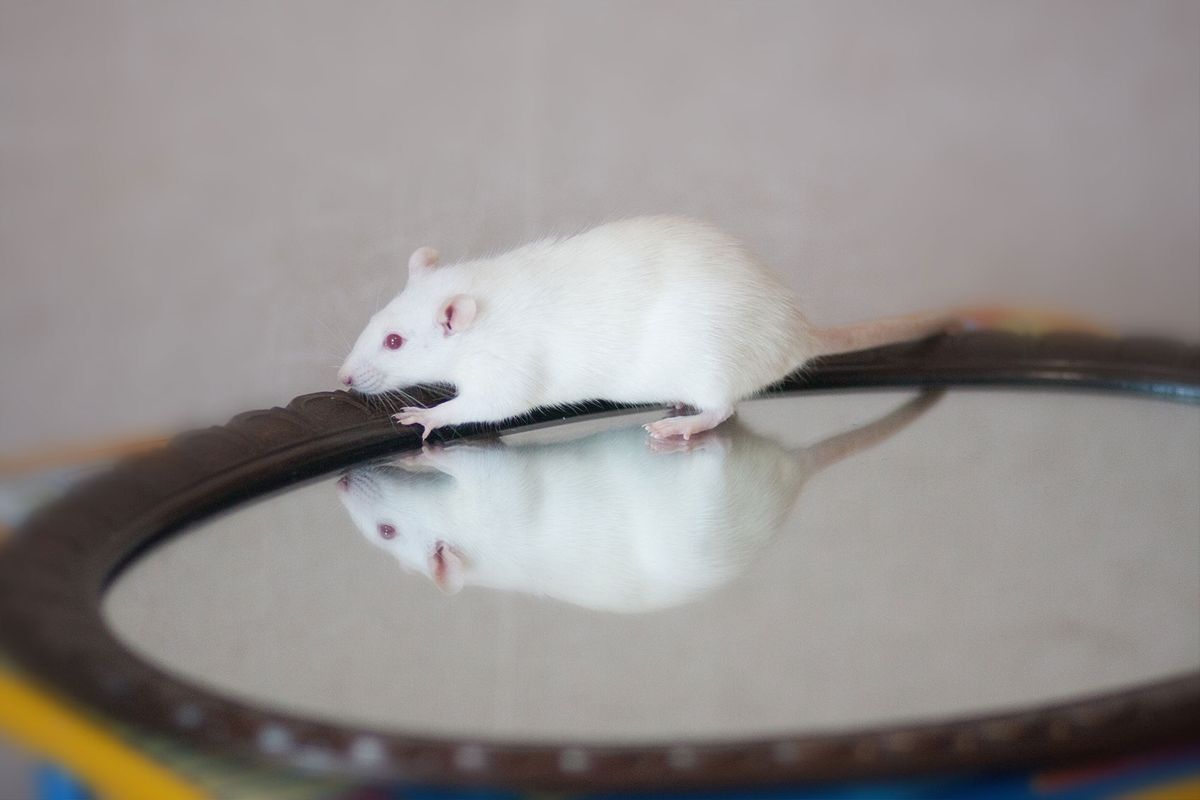A study in the journal Neuron revealed something surprising about mouse intelligence — specifically, that they can recognize their own reflections. That may seem insignificant, but sociologists starting with Charles H. Cooley in 1912 argue that animals which pass the so-called "mirror test" possess an advanced sense of self-awareness, which has intriguing implications for the evolution of our own intelligence. Only a handful of animals other than humans are known to be able to pass the mirror test: Primates like chimpanzees, bonobos, gorillas and orangutans, as well as bottlenose dolphins, Asian elephants, European magpies and cleaner wrasses. Now it seems mice belong on that list.
Scientists learned this by putting white ink on the foreheads of dark-furred mice, then placing them before a mirror. The mice who saw the ink splotches groomed themselves to remove it. Significantly, mice did not groom themselves when they couldn't see the ink because it was either smaller or in a color that blended with their fur. The researchers did more than experiment with ink and mirrors. They also monitored the rodents' brains to learn which parts activated as the mice literally saw themselves.
"Visual self-image may be developed through social experience and mirror habituation and stored in a subset of vCA1 neurons in mice," the authors write. They add mice may even have a "Gestalt of visual self-image," meaning they could have individualistic personalities.

Shares